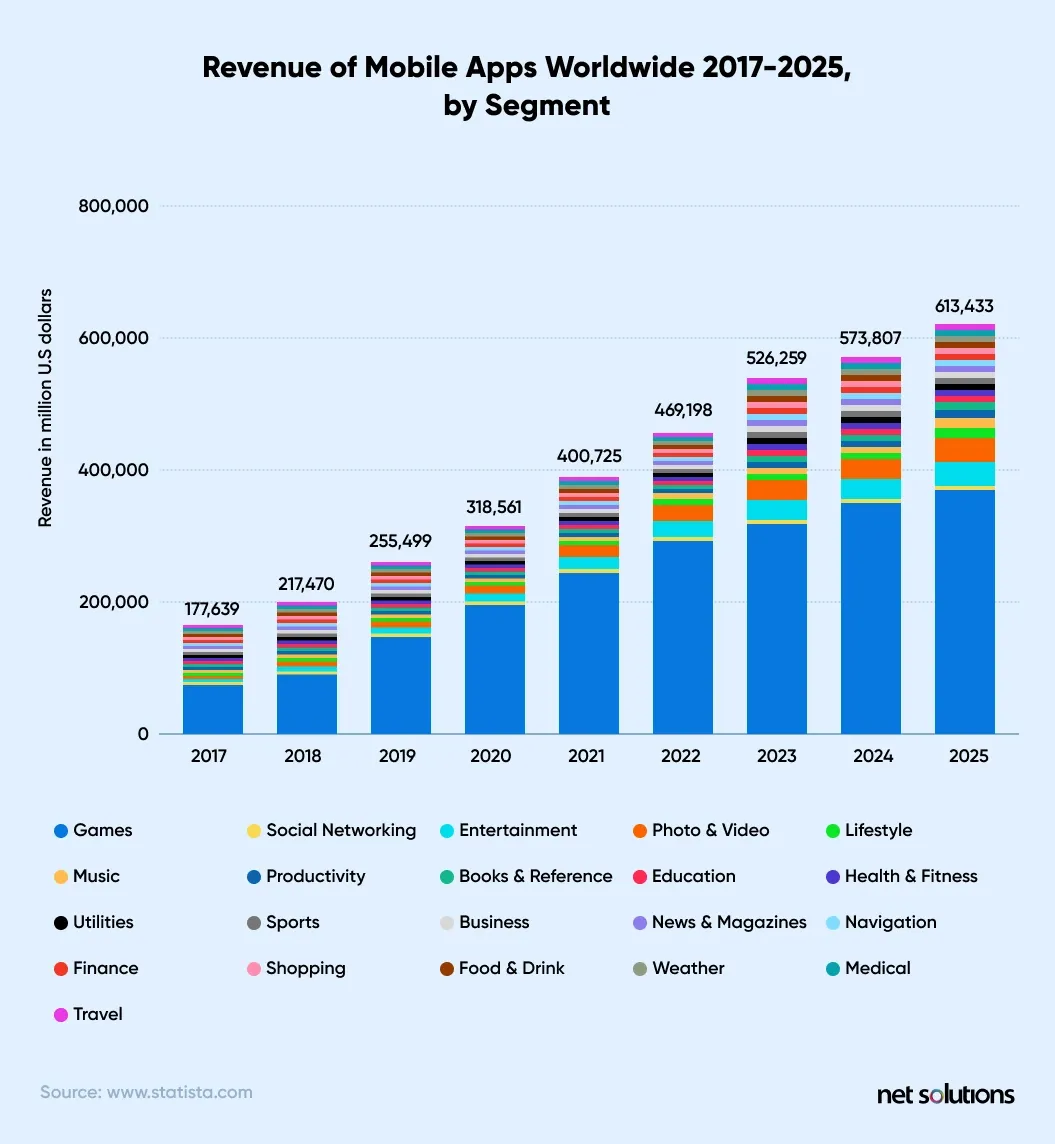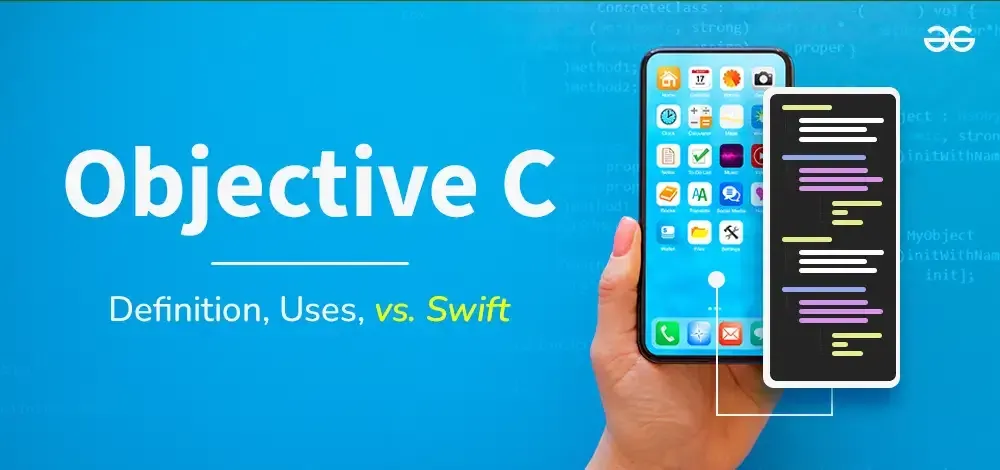In the ever-evolving world of technology, the demand for skilled mobile developers has risen exponentially. As the reliance on mobile devices continues to grow, the need for professionals who can create innovative and user-friendly applications has become paramount. This article delves into the captivating landscape of mobile programming salaries, offering an in-depth analysis of the factors that influence compensation and the opportunities that await aspiring mobile developers.
Understanding the Mobile Development Landscape

The Rise of Mobile Devices and Apps
The ubiquity of smartphones and tablets has transformed the way we interact with the digital world. Consumers now expect seamless and engaging experiences at their fingertips, driving the rapid growth of the mobile app industry. This surge in demand has created a vast array of career opportunities for individuals with the skills to design, develop, and maintain these applications.
The Importance of Mobile Development Expertise
As the mobile ecosystem continues to evolve, the need for specialized expertise has become increasingly important. Proficiency in platform-specific languages, frameworks, and best practices is essential for mobile developers to create applications that meet the high expectations of users and businesses alike.
The Diverse Roles within Mobile Development
The field of mobile development encompasses a wide range of specialized roles, each with its own set of responsibilities and required skill sets. From front-end designers who craft the visual interface to back-end engineers who handle data and server-side logic, the mobile development landscape offers a diverse array of career paths for individuals with varying interests and expertise.
Factors Influencing Mobile Programming Salaries
Industry Demand and Market Trends
The demand for mobile developers is heavily influenced by the overall growth and trends within the tech industry. As businesses and consumers continue to rely on mobile technology, the need for skilled professionals to build and maintain these applications has surged, driving up salaries in response to the high demand.
| Factors | Impact on Salaries |
|---|---|
| Industry Growth | Increased demand for mobile developers leads to higher salaries. |
| Technological Advancements | Continued evolution of mobile platforms and frameworks requires specialized skills, resulting in higher pay. |
| Competitive Hiring Landscape | Companies compete for top talent, driving up salaries to attract and retain the best mobile developers. |
Geographical Variations
The location of a mobile developer can significantly impact their earning potential. Regions with thriving tech hubs, such as Silicon Valley, New York City, and major tech centers, tend to offer higher salaries due to the concentration of companies and the fierce competition for talent.
| Region | Avg. Mobile Developer Salary |
|---|---|
| San Francisco Bay Area | $130,000 – $170,000 |
| New York City | $110,000 – $150,000 |
| Seattle | $100,000 – $140,000 |
| Boston | $95,000 – $130,000 |
| Chicago | $90,000 – $125,000 |
Educational Background and Certifications
The educational background and professional certifications of a mobile developer can play a crucial role in their earning potential. Individuals with advanced degrees, such as master’s or doctoral degrees in computer science or related fields, often command higher salaries due to their specialized knowledge and expertise.
| Education Level | Avg. Mobile Developer Salary |
|---|---|
| Bachelor’s Degree | $80,000 – $110,000 |
| Master’s Degree | $100,000 – $140,000 |
| Doctoral Degree | $120,000 – $160,000 |
Additionally, industry-recognized certifications, such as those offered by platform-specific frameworks or development tools, can enhance a mobile developer’s value and earning potential.
Years of Experience and Expertise
The level of experience and expertise a mobile developer possesses is a significant factor in determining their salary. Seasoned professionals with a proven track record of successful mobile app development projects typically command higher salaries compared to entry-level or junior-level developers.
| Experience Level | Avg. Mobile Developer Salary |
|---|---|
| Entry-Level (0-2 years) | $60,000 – $80,000 |
| Mid-Level (3-5 years) | $80,000 – $110,000 |
| Senior-Level (6+ years) | $100,000 – $150,000 |
| Lead/Architect (10+ years) | $120,000 – $180,000 |
Developers who have specialized skills, such as expertise in specific mobile platforms, frameworks, or cutting-edge technologies, tend to have an edge in the job market and can negotiate higher salaries.
Company Size and Industry Sector
The size and industry sector of the employer can also influence mobile development salaries. Larger tech companies, such as tech giants and well-established startups, typically offer higher compensation packages to attract and retain top talent. Additionally, certain industries, such as finance, healthcare, and e-commerce, tend to pay higher salaries due to the critical nature of mobile applications in their respective fields.
| Company Size | Avg. Mobile Developer Salary |
|---|---|
| Small (< 50 employees) | $70,000 – $100,000 |
| Medium (51-500 employees) | $90,000 – $130,000 |
| Large (501+ employees) | $100,000 – $150,000 |
| Industry Sector | Avg. Mobile Developer Salary |
|---|---|
| Finance | $110,000 – $160,000 |
| Healthcare | $100,000 – $140,000 |
| E-commerce | $95,000 – $135,000 |
| Technology | $90,000 – $130,000 |
| Retail | $85,000 – $120,000 |
Emerging Trends in Mobile Development Salaries

Rise of Platform-Specific Expertise
As mobile platforms continue to evolve, the demand for developers with specialized skills in specific operating systems, such as iOS and Android, has increased. Professionals with deep knowledge of platform-specific languages, frameworks, and best practices can command higher salaries.
Increasing Demand for Full-Stack Capabilities
The growing need for mobile applications that seamlessly integrate with back-end systems has led to a rise in the demand for full-stack mobile developers. Individuals who possess expertise in both front-end and back-end technologies are highly sought-after and can negotiate higher compensation packages.
Emergence of Cross-Platform Development
The rise of cross-platform development frameworks, such as React Native and Flutter, has created a new set of opportunities for mobile developers. Professionals who can build applications that run on multiple platforms (e.g., iOS and Android) without the need for platform-specific code can leverage their skills to command higher salaries.
Importance of User Experience (UX) and Design
As mobile applications become more sophisticated and user-centric, the demand for mobile developers with strong UX and design skills has increased. Professionals who can create visually appealing, intuitive, and user-friendly mobile experiences are highly valued and can negotiate higher salaries.
Growth of Mobile App Security and Privacy
With the increasing focus on data privacy and security, the need for mobile developers with expertise in secure coding practices and data protection has risen. Professionals who can build robust and secure mobile applications are in high demand and can command premium compensation.
Strategies for Maximizing Mobile Programming Salaries

Continuous Learning and Skill Development
To stay competitive in the dynamic mobile development landscape, it is crucial for professionals to continuously expand their knowledge and skills. Engaging in ongoing training, attending industry conferences, and mastering emerging technologies can help mobile developers increase their earning potential.
Focusing on Specialized Expertise
Developing deep expertise in specific mobile platforms, frameworks, or cutting-edge technologies can give mobile developers a competitive edge. By specializing in high-demand areas, they can position themselves as valuable assets and negotiate higher salaries.
Building a Strong Portfolio and Reputation
Showcasing a portfolio of successful mobile app development projects and building a positive reputation within the industry can significantly enhance a mobile developer’s earning potential. Participating in open-source projects, contributing to industry blogs, and winning awards can all contribute to a developer’s professional standing.
Considering Freelance or Consulting Opportunities
Exploring freelance or consulting opportunities can provide mobile developers with the flexibility to set their own rates and potentially earn higher incomes. By leveraging their expertise and establishing a strong client base, mobile developers can command premium compensation for their services.
Negotiating Effectively
When it comes to salary negotiations, mobile developers should be well-informed about the market rates and their value proposition. By presenting their qualifications, highlighting their achievements, and negotiating confidently, they can secure more favorable compensation packages.
Conclusion
The mobile development landscape is a thriving and lucrative field, offering a wealth of opportunities for skilled professionals. Factors such as industry demand, geographical variations, educational background, and expertise level all contribute to the wide range of mobile programming salaries. By staying informed, continuously developing their skills, and effectively negotiating, mobile developers can maximize their earning potential and capitalize on the growing demand for their specialized expertise.


